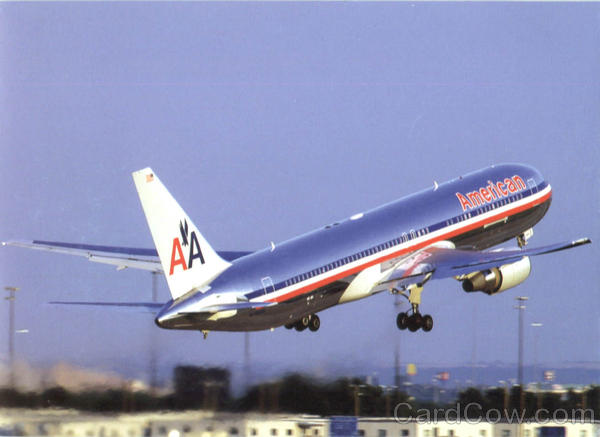Fly American – Unless You Know Better: Geopolitical Humor for the Oscars
The Washington Note |

By Parag Khanna
In "Up in the Air," George Clooney portrays uber-frequent flier Ryan Bingham, who reaches ten million American Airlines miles--without ever leaving the United States. American Airlines is portrayed as the grand old silver lady of flying, and that's precisely the problem. It's certainly old, but far from grand. What does Clooney's Oscar hit have to do with U.S. foreign policy?
Most Americans simply don't realize just how "brand America" no longer carries much weight in the world unless you are looking for an iPhone or a Hollywood blockbuster.
Our cars, political system, and economic practices have become a joke, and the Obama glow wore off before his administration's one-year mark. Our ignorance is best captured by the same American Airlines linked Mastercard's apparent policy to block usage of the card as soon as you commit the crime of trying to use it in a foreign country. Yet we still think we're the best because we don't know much about the rest.
American Airlines is a great metaphor for America itself. A recognizable brand that provides plenty of connections, but whose value and quality of service is greatly diminished. Its 757 planes rattle like roller-coasters, the in-flight entertainment system constantly conks out, and it's so loud in the cabin that Bose noise-cancelling headsets are no match. And try making a booking over the phone or online without the agent's keyboard freezing or system crashing.
Meanwhile, emerging market airlines from the UAE's Emirates and Etihad to India's Jet Airways are providing better services at lower prices. Their flight attendants dress in style, their food is hot, and they arrive on time.
In Europe - yes, the same socialist sclerotic Europe conservatives love to bash - there are twice as many airlines as there are EU member countries. Following on the success of Ireland's Ryan Air, imitators galore have sprung up, driving more connections at lower costs. Most of the price of any flight within Europe is taxes that maintain first-rate infrastructure, not airfare. And you don't have to pay for peanuts.
One year into the Obama administration the very necessary debate about our national competitiveness is taking shape. We are falling behind in educating future innovators, meaning our economic edge is fading fast. In web-tech, we have Google, Amazon, and Twitter, but local preferences are gaining ground in Asia (a fact which lies at the heart of the Google vs. China face-off), where 4G speeds make American mobile operators look like the equivalent of a rotary dial.
In bio-tech, we've ended Bush-era bans on stem-cell research, but new patents are pouring in from India and Korea where researchers are going after mainstream health problems and not just specialty drugs. And in clean-tech, save for some promising pockets of experimentation with electric cars and smart grids, we are the world's dirtiest per capita.
Globalization means that the gap between "Invented in America" and "Made in China" is shrinking rapidly. Technological know-how is spreading faster than ever--multinational corporations have to transfer the latest techniques and skills to foreign managers a condition of setting up shop overseas. It's no surprise that China just debuted the fastest inter-city bullet-train in the world just a few years after German industrial giant Siemens build China its first one.
Feel-good rhetoric can't reverse this greatest shift in geopolitical and geo-economic conditions: Globalization once extended America's edge, now globalization accelerates its undoing. America's share of the global economy is shrinking from close to an unnatural fifty percent at the end of World War II past the steady 25 percent mark held for about a decade towards a far more modest 20 percent.
We are not a big enough market to set global standards--instead we're somewhere between Europe, which raises environmental and industrial quality control regulations, and China which undermines them.
If we want to re-capture global leadership for the sake of our economic competitiveness and national self-esteem, it starts by flying overseas and learning how the world's new markets live: what they drive (smaller and cleaner), what they eat (organic and with trans-fat optional), and what their values are (not church vs. state but rather a community-based politico-economic-spiritual synthesis).
Today there are probably several thousand young and unemployed American MBAs making that trip to the booming Persian Gulf emirates, India, China, Brazil, Turkey, Indonesia and other emerging markets.
Maintaining America's vaunted capacity for self-renewal hinges on them coming back with fresh ideas on how to make in America and sell in the rest of the world. Any American who can afford to should follow their lead.
But start the trip right: don't fly American Airlines -- unless perhaps you are trying to get from Tulsa to Texas.